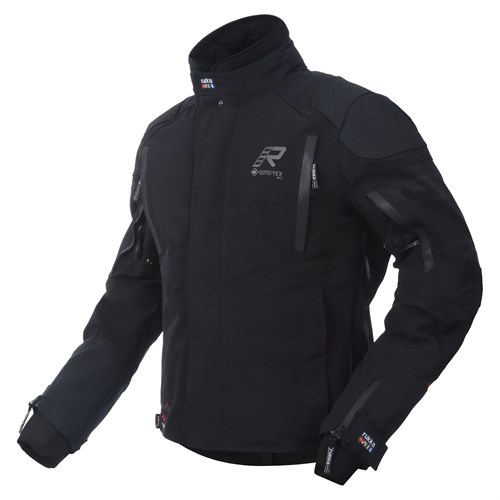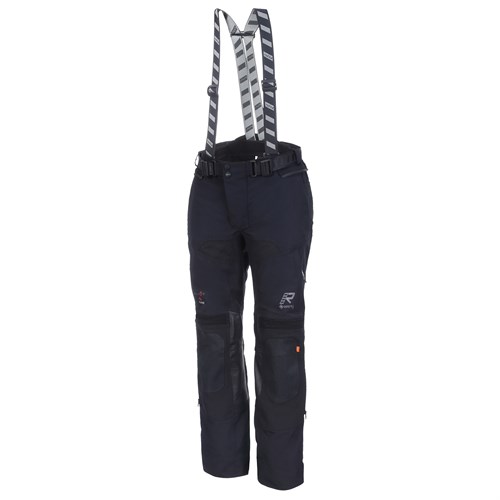Rukka Kingsley jacket review
Published on: 18 January 2021
The Rukka Kingsley jacket is new for the 2021 season. And technically it now sits at the very top of the Rukka range. Indeed, it is somewhat more expensive than the superlative Rukka Nivala that has proven so popular in recent years. For many people, we suspect, the Nivala may still be the preferred option. And that is because the Nivala will, for most, still be the more comfortable suit.
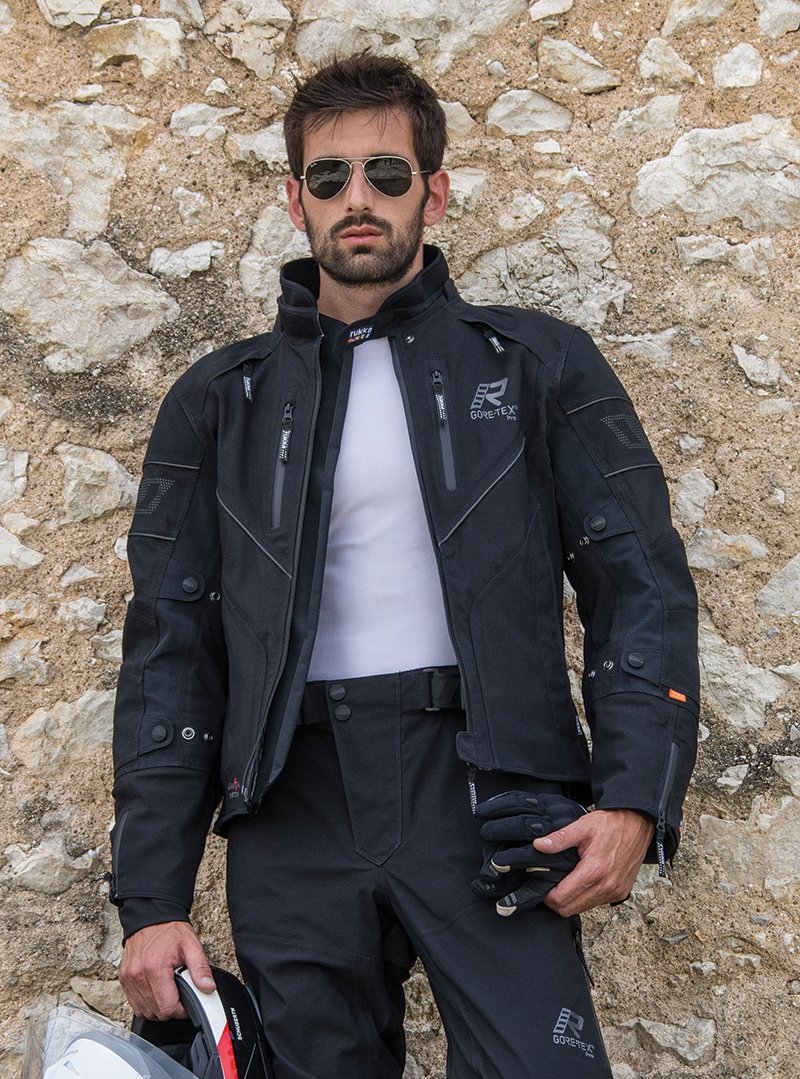
The Rukka Kingsley suit has been created largely to meet the needs of the British police. They told Rukka that they required a riding suit to be accredited to at least the new CE AA standard. Now the Nivala technically doesn’t do this because, when it was first created, it achieved its CE accreditation through a different route; a route that technically precluded it from being considered for government tenders. What we would stress, however, is that if the Nivala had been tested to the new standard it would have easily met the AA standard. Of that we have no doubt. But given that the Nivala is coming to the end of its natural life cycle, Rukka decided not to re-submit it for CE approval. Anyway, that’s the back story.
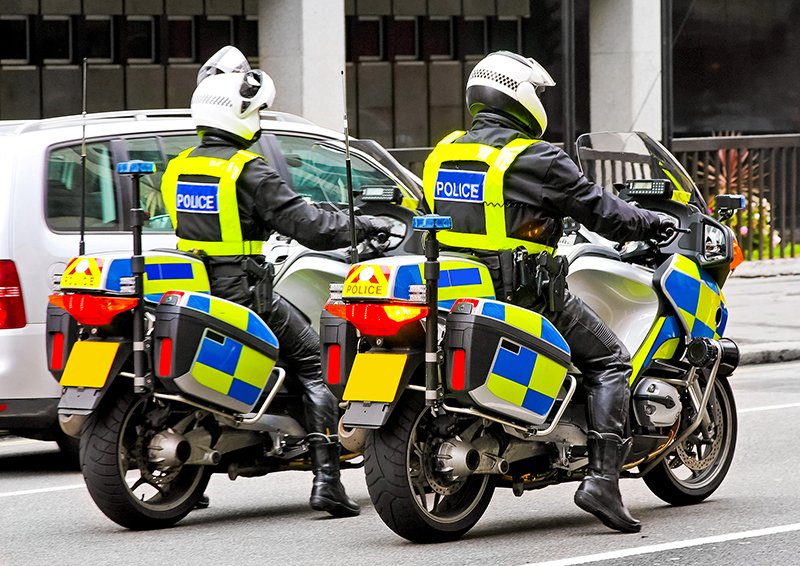
Both the top and bottom halves of the Kingsley are made from a Gore-Tex laminated 3-layer Pro Shell; the most robust and waterproof construction for motorcycle gear, although traditionally perhaps not the most comfortable. The Rukka Nivala uses the same laminate construction, but uniquely with the Nivala the outer fabric is infused with a stretch material for added comfort. The Rukka Kingsley jacket, by contrast, uses stretch panels on the chest, in the shoulders and on the elbows to help articulation and to increase comfort. Likewise, there are adjusters on the arms, at the hem and at the sleeve ends. But despite all of this, the Kingsley will never quite match up to the Nivala when it comes to wearability.
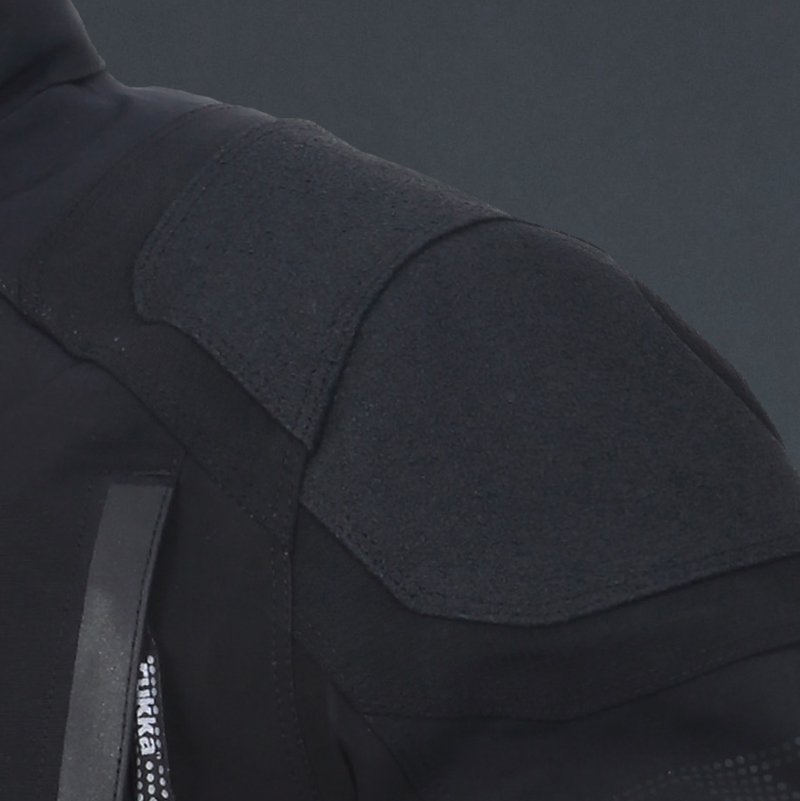
On the shoulders and elbows you will find a panel of Keprotec laid over an area of Armacor. Now this would certainly suggest that, in these areas, the suit might outperform the Nivala in an accident scenario, because Keprotec is very strong, and both supremely tear and abrasion resistant. The armour is D3O Air XTR. It meets the higher Level 2 standard, and comes as standard also in the back of the jacket. You also get, as you do with the Nivala, a Level 1 chest protector. Venting is a strong suit for the Rukka Kingsley. The jacket is also better vented than any road suit ever produced by the Finnish brand, with vents on the sleeves, up the flanks, on the chest and across the back.
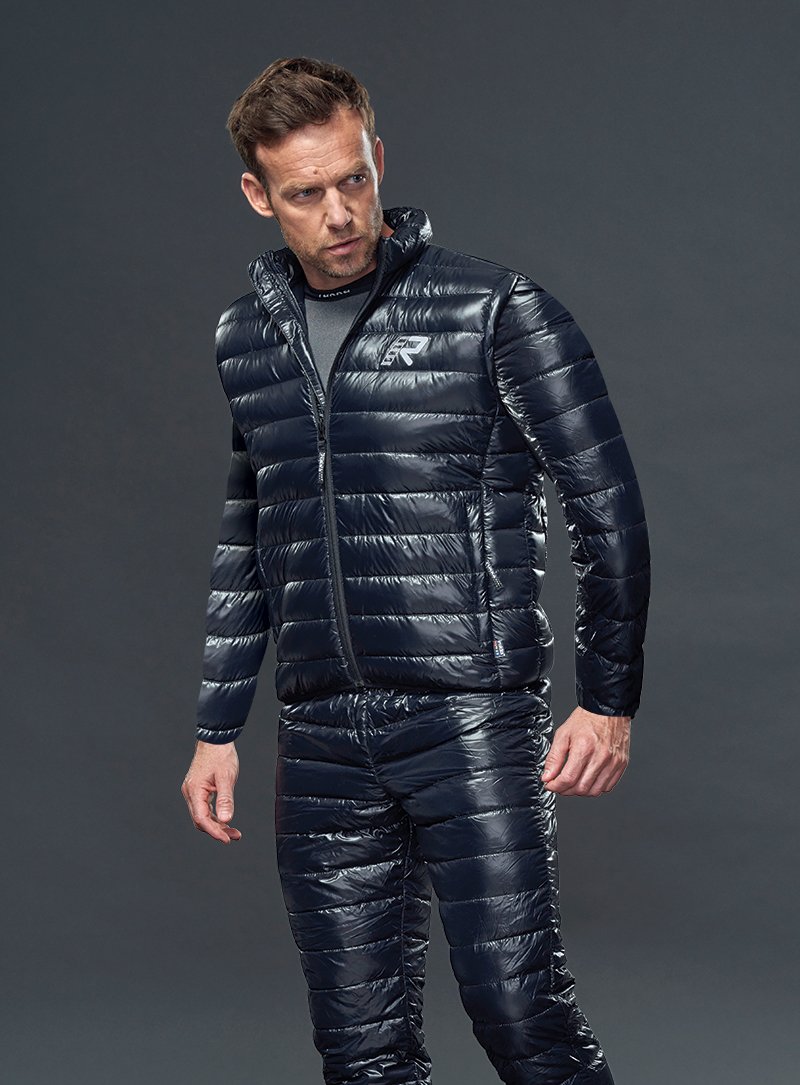
Thermal protection comes courtesy of the superb Down-X duvet-style liner to be found in the Nivala. The Kingsley jacket then also has a fixed Outlast liner. A combination of the two should mean that the Kingsley will be warmer than the Nivala. But, because of the Outlast, potentially cooler too. The neck is lined with neoprene, both for comfort and to stop rain running into the jacket. Pockets are, as ever with Rukka, in plentiful supply. You get three on the outside and one on the inside.
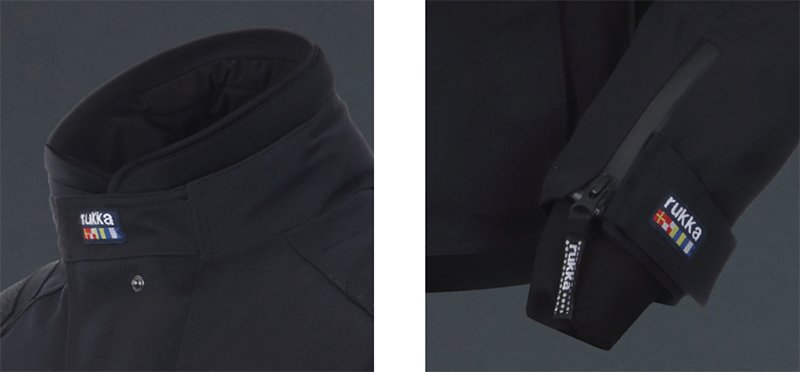
Of course, the jacket will zip into the matching Kingsley pant, or indeed into any Rukka pant. But if that is too much hassle, there is also an elasticated crotch strap that will keep the jacket in place. The sleeves come with GTX cuffs. These cuffs create a double seal around the sleeve ends so that rain can never go up the sleeves and get into your gloves. The only downside is that these cuffs can make it harder for air to flow into the jacket in hot weather. Finally, as with all of Rukka’s outfits, you get a six year warranty, provided that you register the purchase with the importer.
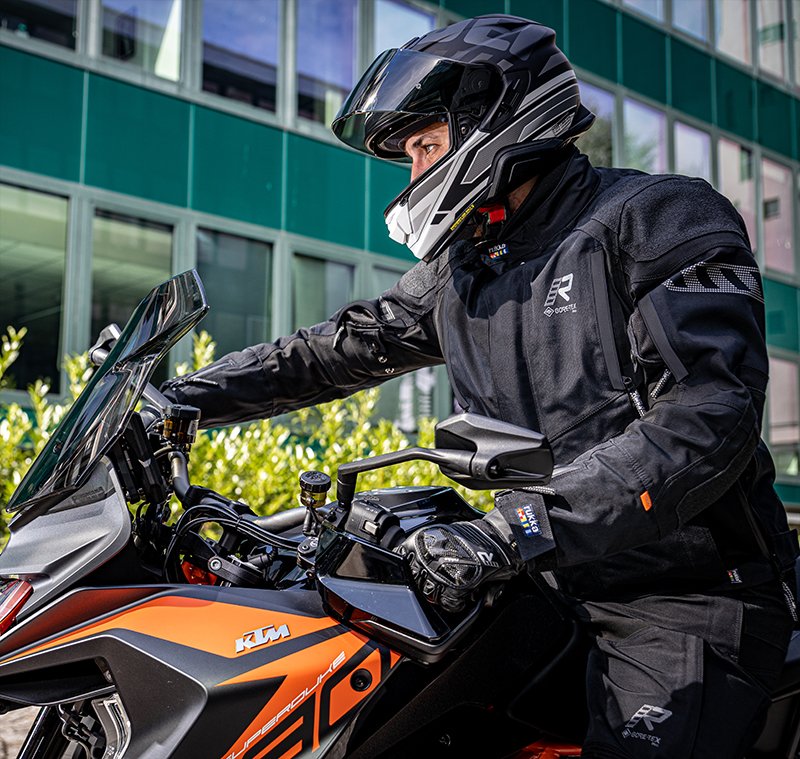
All the other details for the jacket are pretty much as you would expect. So where do we stand on the Rukka Kingsley? Well, from a comfort and wearability perspective we would almost certainly go for the Nivala. But others may have a good reason for preferring the Kingsley. Some people will be persuaded that the Kingsley is safer to ride in than the Nivala. But to us this is a little like saying that a 200 horsepower bike is faster than a 190 horsepower bike. This might conceivably be the case, but in the real world, this is a distinction without a difference, as both are going to be way too fast for any motorcyclist to ever be able to discern between them. The fact is that both of these suits are incredibly protective.
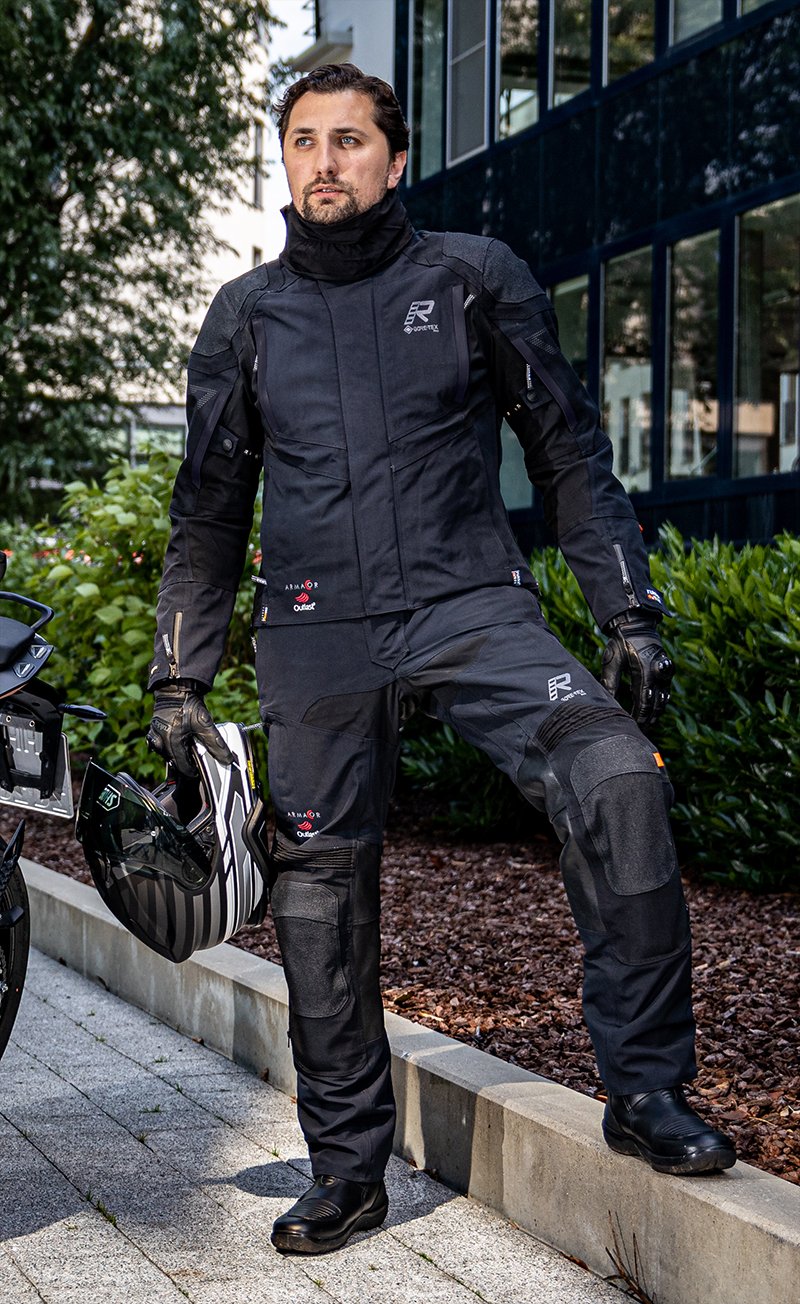
So far we’ve looked almost exclusively at the jacket, and obviously there is a matching pant. And in many areas the pants are like the jacket; both in terms of construction and features. They are Gore-Tex, 3-layer laminated, have Keprotec and Armacor on the knees and hips, and vents on the front and back of the thighs.

There’s an adjustable belt at the waist, and stretch panels at the crotch, in the knees and in the back yoke, for comfort. You get two zip pockets. There’s a connecting zip, but the pants also come with Rukka’s sturdy braces. Almost any boot will fit inside the leg of the Kingsley pant; anything with perhaps the exception of a full-on, plastic, off-road boot. You also get two zip pockets, an AirCushion system in the seat and leather patches that run up the inside of the legs into the bum area, to prevent sliding on the seat, and to protect the rider from the heat of the exhaust.
D3O XTR comes as standard in the knees and hips. For thermal insulation, just like the jacket, the pants are permanently lined with Outlast but, of course, the pants are also equipped with the Down-Y pants that you get with the Nivala pants.
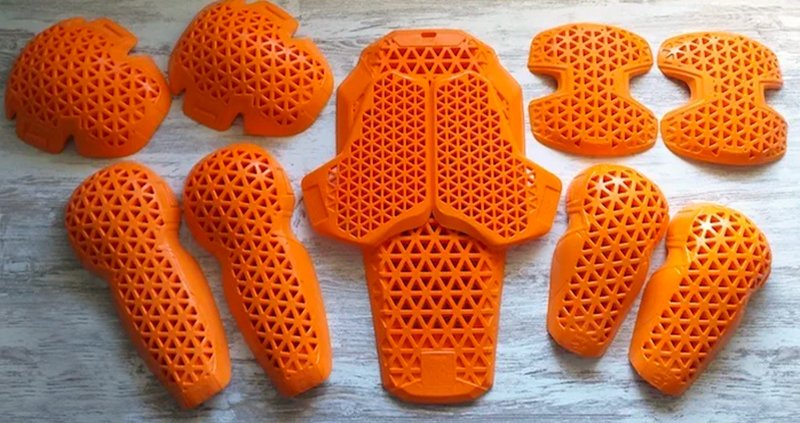
At this end of the market, we would always expect a trousers to come in multiple, leg lengths. And of course the Kingsley does. There’s a regular, a short and a long leg length. For us, it’s vital to get the right trouser for you and your bike. The right length of pant will see the hem of the pant sit on the ankle when you’re in the riding position. If it sits higher than this, there’s a good chance that the rain will be able to come up the leg and over the shaft of your boot; especially if you’re wearing shorter boots. If the hem sits lower than your ankle bone, there’s a good chance that it will drag along the floor when you’re off the bike.
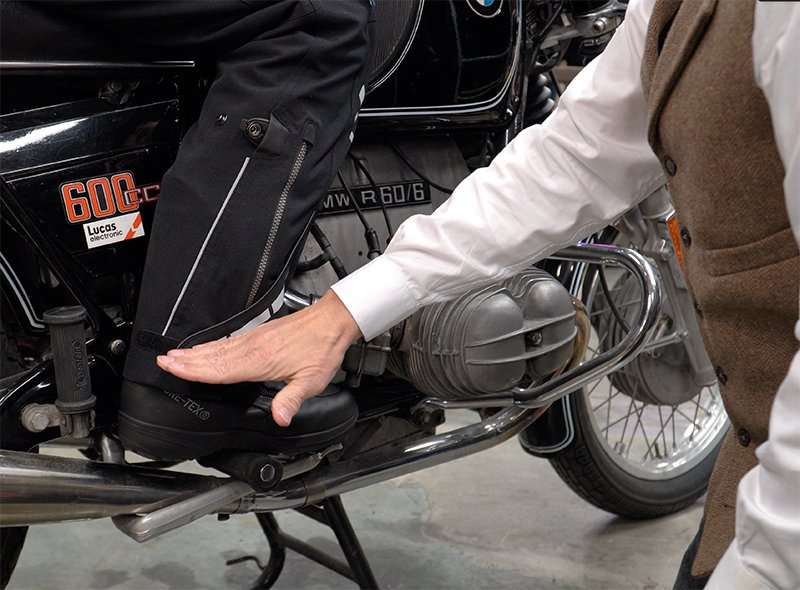
So where do we get to with the Kingsley suit? Well, the Kingsley is bit better vented than the Nivala. It will be warmer in the winter, and with its Outlast lining, potentially cooler in the summer. And in the margin the Kingsley jacket is conceivably more protective. For us, the Nivala still edges it because it is simply nicer to wear and nicer to ride in. But if a different CE label, extra Keprotec, better venting and better insulation are important, and if you are prepared to trade off these properties against a little extra comfort, then it may be that the Kingsley is for you. What you need to do, of course, is come and see us to try them both on. We look forward to seeing you, and to working out which suit will work best for you.
Share this story


















































